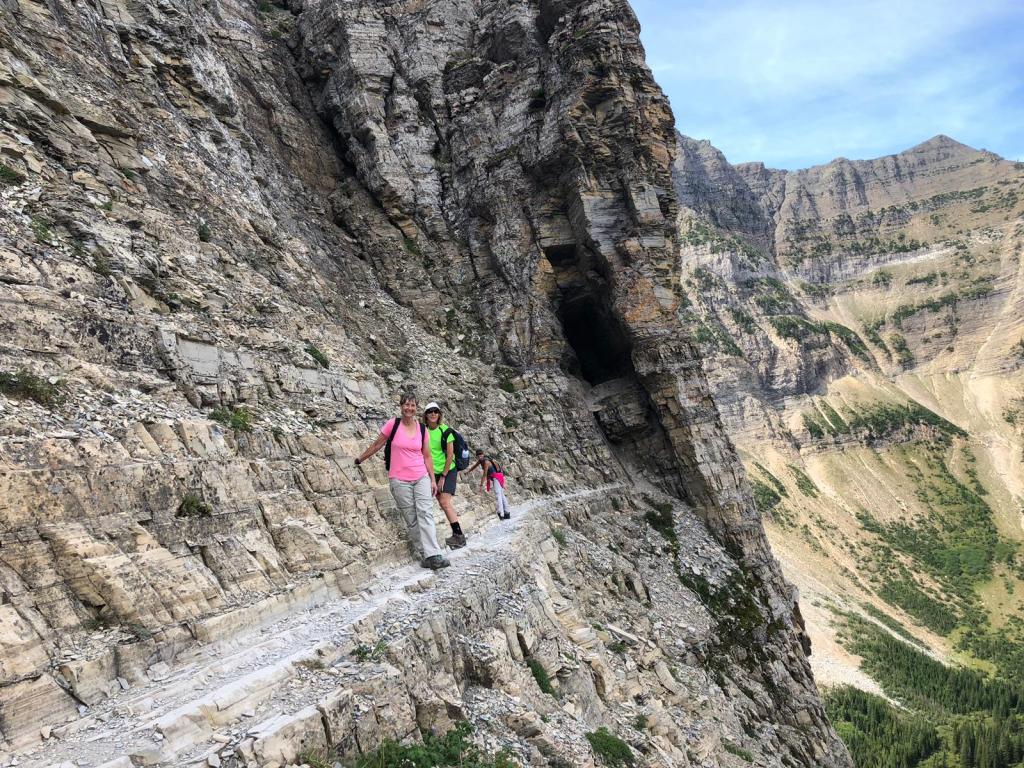Teshuvah after the Gates Slam Shut
Here in the valley where the tree roots form a rugged map
of chaos and danger, we step carefully to avoid falling.
Shadows of low branches on old trees play tricks on our resolve.
We walk with fear and worry, bereft of enjoyment
Getting through to get past to be out of this place
Feeling helpless and low in the dusk
Questioning the wisdom of the journey even here at the start.
Ascent is required, of course, and we know its challenges:
The breathless trudging onward, the desire to stop, the seduction
of the backward glance toward the downhill.
But we turn our face toward the summit and climb and we climb.
May we reach the summit together and there find
a well-worn trail along the ridge from which we see the
wide vast world, a perspective that brings sense and understanding.
From here we see that the journey will never be easy and we will
need to hike it again and again. But there will always be
at the close of each day, a belief in the summit and
the joy of that hike along the ridge.
I wrote this poem for Yom Kippur services this year. The metaphor of a chaotic valley, a painful and challenging ascent, and a respite at the summit felt like a much-needed affirmation after the past difficult year. The perspective and ease available from a high point on our journey are gifts of the Jewish New Year.
I share this poem now, even though Yom Kippur is already a memory as we rush forward to Sukkot, because I want to share a very important idea: Many of us never reach the summit on Yom Kippur. Despite our best intentions and honest soul-searching work, many of us do not feel cleansed, affirmed and brand new on the Day of Atonement. For us, Yom Kippur does not feel like a well-worn trail along a ridge. We say we are sorry to those we have hurt. We recite the words of the prayers. We beat our chest as we recite the confessional prayers. With all of our hearts, we believe the metaphor that we must complete the work of teshuvah before the gates slam shut at Neilah (the concluding service of Yom Kippur). We try. But we don’t accomplish what we set out to do. We hear the blasts of the shofar and head out to break our fast feeling uneasy about our lack of connection with God. We still have relationships to repair, promises to fulfill, mistakes we want to correct.
Here is the good news: we have an extension for this work of teshuvah until Hoshannah Rabbah at the end of Sukkot. We beat the willows from our lulav and etrog ritual and shake off the remainder of our sins.
And here is even better news: Judaism understands that living a good life, striving to be a contributor to a holy community, and fulfilling the desire to be our best selves are lofty goals that do not come easily to all of us. Yom Kippur is a red-letter date on the calendar each year because we humans tend to require deadlines to get serious about things. Judaism teaches, however, that every day is another opportunity to turn our lives around, to get back on the trail heading upward, and to see the world from a perspective of a well-worn path along a ridge. Teshuvah is available in our daily prayers, in the study of Torah, and in small meaningful acts of kindness. May this year offer you abundant opportunities to become your best self.
G’mar chatimah tovah, May you be sealed for a good new year,
Rabbi Paula Mack Drill


Beautiful post. Thank you very much.
Beautifully expresses what many feel.
Thanks, Steve Goldberg. cell/text 914-261-3781
>
Wonderful message! Your poetry is beautiful.
Now: Please tell me that you photoshopped yourself on that ledge. My heart is racing just to look at it!!
You’re so funny!! Sorry to say that is really me on a ledge in Montana! And Amy Nelson is right next to me!
Loved it!
On Sun, Sep 19, 2021 at 9:48 PM Two Rabbis, One Voice, Three Opinions wrote:
> Rabbi Paula Mack Drill posted: ” Here in the valley where the tree roots > form a rugged mapof chaos and danger, we step carefully to avoid > falling.Shadows of low branches on old trees play tricks on our resolve.We > walk with fear and worry, bereft of enjoymentGetting through to get past t” >
Dear Rabbi Drill,
Thank-you for the beautiful and moving poem and message.
Chag Sameach, Cat